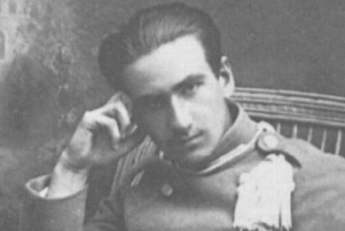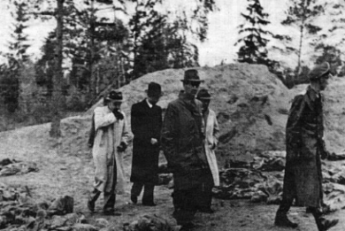
About Eastern Europe differently
We often divide European countries into the West and the East, distinguishing characteristic economic, cultural, religious and moral features. Although this dividing line is very old, it still raises a lot of controversy. Also, Józef Mackiewicz partially disagreed with such a division.
J. Mackiewicz claimed that once “life in St. Petersburg or in Moscow was more like life in London than life in London was like life in Sicily”. Two things are worth noting here: both London and Sicily belong to Western Europe, although the worldview, lifestyle and even architecture differ significantly there. Conversely, Russian cities and the capital of Great Britain are located in two different “Europes”: Eastern and Western, but they have a lot in common: starting from urban planning and functioning, ending with the richness of culture.
The publicist emphasized that the line dividing Europe into two was born from the dispute between the Catholic and Orthodox Churches. Western culture is, in other words, the legacy of Latin culture. However, Mackiewicz does not believe that there used to be a significant difference between the East and the West. As he says: “they murdered and eyes gouged out here and there.”
“I remember that in the pre-revolutionary period the non-metric system used in Russia was characterized as typical backwardness. An analogous system in England, n.b. prevailing to this day, is only to testify to attachment to tradition. (…) When in today’s Bolshevik misery people meekly line up in front of shops for a piece of bread, there is often talk of Arab submission, the legacy of Ivan the Terrible, etc. When in London on less important occasions they line up in obedient lines, this is cited as an example of social discipline. When the tsarist policeman (Gorodovoi) beat his teeth with his fist, he was an example of the barbaric East. When the French police, for less necessary reasons, hit the head with batons, it is not considered typical of the West,” argued Józef Mackiewicz.
The publicist believed that if Switzerland were part of Eastern Europe, an issue such as women’s disenfranchisement would be attributed to their geographic location. The same is true of most controversial and/or negative situations: it is believed that they can only happen in the “dark” East. Although many specialists in the field of historiosophy are trying to find the “Eastern soul”, Mackiewicz is convinced that the difference between the Eastern European and Western European psyche stems from the civilizational backwardness of Eastern Europe and illiteracy. Nevertheless, in both these areas there are common themes, present in everyday life, literature, and the human psyche. According to Mackiewicz, it is wrong to say that something is typically Eastern (indeed, it is the same as saying that something is typically German, Russian or Polish) when such an act or trait is typically human. Besides, even illiteracy, according to Mackiewicz, had its advantages. While the masses of people in Europe were flooded with a wave of pseudo-culture, in Eastern Europe only the upper class admired the culture, not inferior to their counterparts from the West. It was only after the Bolshevik revolution that a pseudo culture entered Russia, based on “repetition of the verses of Lenin’s canons.”
To confirm the thesis that Eastern Europe is not much different from its western neighbours, the publicist cites a few more interesting facts. Namely, he emphasizes that in fact many things that are often attributed only to Russia also exist in Western countries. During the purges in France, Belgium and the Netherlands, a similar number of people were arrested as in Russia sent to labor camps. In addition, in Western countries, famous social activists and representatives of the intelligentsia were imprisoned and treated cruelly. “The Nuremberg Trial also failed to confirm the honorable distinctiveness of the European West,” J. Mackiewicz shared his thoughts.
In the end, the writer recognizes that there really are no specific ideologies. There is no Stalinism and it was invented only by opponents of Bolshevism. There is no such thing as an ‘Eastern soul’, the idea was imposed by the hostility of a few countries with the ‘others are worse’ rhetoric.
“Communism is not a geopolitical issue. It is a kind of psychic plague, the first victims of which were the Russians. In this situation, Russia is not an enemy of the West, but should be its first ally in the fight against communism, of which Moscow is now the imperial capital,” wrote Mackiewicz.
According to Mackiewicz, Russia should not be identified with communism and Eastern Europe should not be attributed with these or other features. First of all, we should find a starting point together and fight communism, not consider ourselves superior. Only in this way could the whole of Europe act coherently and historical events, perhaps, would have turned out quite differently.
Prepared on the basis of an article by Józef Mackiewicz in the weekly “Wiadomości” from 1957. “Józef Mackiewicz: The so-called European East.”







